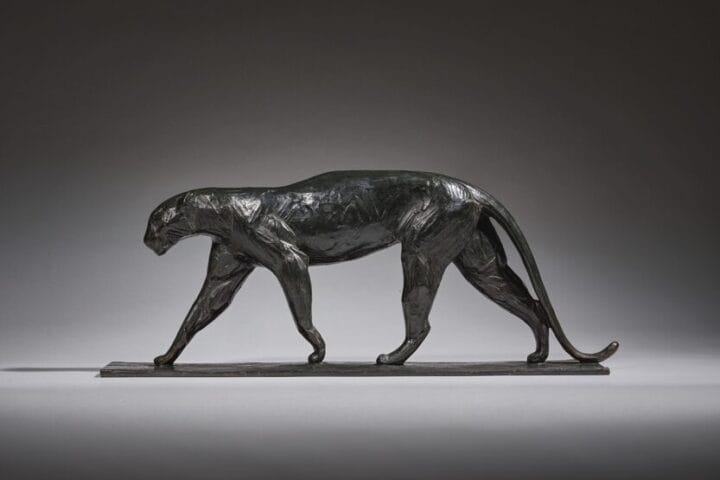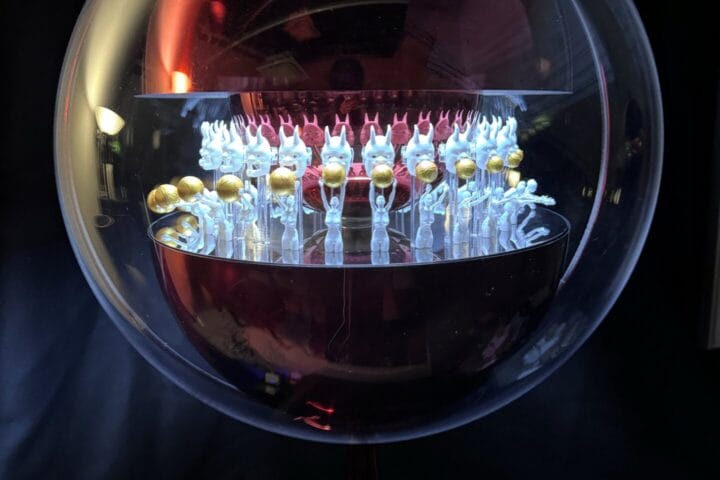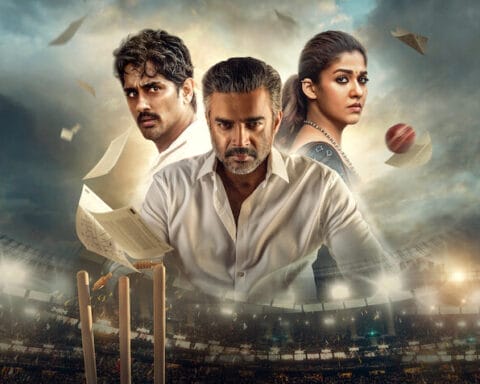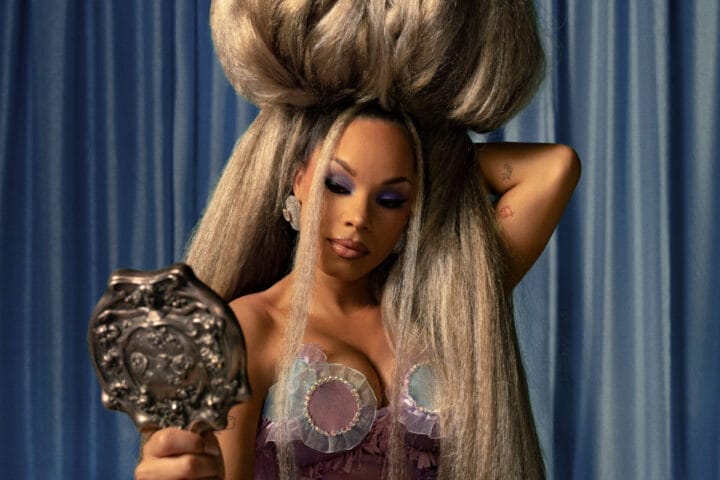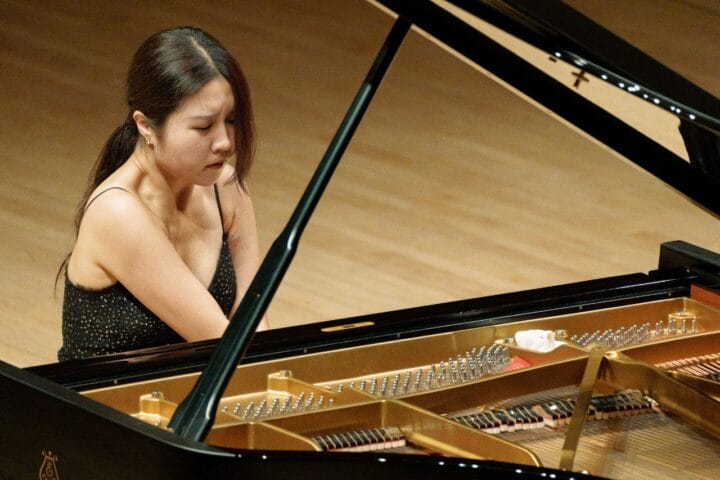The 2025 Southbank Centre season begins with visionary pianist Pierre-Laurent Aimard joining the Philharmonia, conducted by Manfred Honeck, for a programme spanning the Romantic period. Pierre-Laurent Aimard has earned a reputation as one of the most respected interpreters of Beethoven’s music and on 2 February (3pm) he treats us to a performance of the Third Piano Concerto. The programme also features Dvorak’s Symphony No. 9 ‘From the New World’ and the overture to Weber’s Der Freischütz (The Marksman).
Guest Conductor Marin Alsop leads the orchestra in a Latin American flavoured Valentine’s Day evening that features the world’s leading classical accordionist, Ksenija Sidorova, and 2023 UK Tango Champions Iro Davlanti-Lo and Adrien Bariki-Alaoui. Including Gershwin’s Cuban Overture and Bernstein’s Symphonic Dances from West Side Story, the all Piazzolla second half includes Aconcagua Concerto before Tanti Anni Prima for solo accordion and tango dancers and the famous Libertango unites them with the orchestra for a barnstorming finale.
In addition, there is a free pre concert talk with Marin Alsop discussing the programme (6pm), and a free post concert tango workshop with Iro and Adrien on the Clore Ballroom, providing the perfect end to the evening!
The spotlight is on the Philharmonia’s Joint Principal Clarinet Mark van de Wiel in a free early-evening concert (20 Feb, 6pm RFH) which features Ruth Gipps’ Rhapsody and Weber’s Clarinet Quintet to celebrate his 25-year long career with the orchestra.

Discover spellbinding violinist Daniel Lozakovich, born in 2001 and signed by Deutsche Grammophon at just 15 years old. He joins the Philharmonia for Prokofiev’s Violin Concerto No. 2 – a chance to experience different facets of Lozakovich’s ‘exceptional talent’ (Le Figaro). Rachmaninov’s Second Symphony, boasts many memorable moments for the second half of the concert (20 Feb, 7.30pm)
Conducted by Paavo Järvi, two of Stravinsky’s thrilling ballet scores, Petrushka and The Firebird, frame the UK premiere of a new cello concerto by Estonian composer Erkki-Sven Tüür. Cello Concerto No. 2 ‘Labyrinths of Life’ is Inspired by a poem by Federico García Lorca and was written for soloist Nicolas Altstaedt (27 Feb).
Genre-defying violinist Nemanja Radulović, the Philharmonia Orchestra’s Featured Artist this season, is soloist, director and arranger in this deeply personal programme: Nemanja Radulović: Journeys with a violin (28 Feb). Bach is the epicentre of Radulović’s musical journey. He has chosen three of Bach’s ever-fresh violin concertos – in the third, he is joined by the Philharmonia’s Concertmaster Zolt-Tihamér Visontay. In between, enjoy a whistle-stop musical tour of Europe. Radulović brings his distinctive flair to music from his native Serbia, his adopted home of France, North Macedonia and Spain, in four folk-inflected pieces taken from his acclaimed album Roots.
Sensational young pianist Mao Fujita gives the first of two performances of Mozart with the Philharmonia (2 March). In his mid-twenties, Fujita already has a string of competition successes and a universally acclaimed recording of Mozart’s complete piano sonatas under his belt. His affinity with Mozart and deep affection for his music shines through in his performances. To pave the way for Mozart’s sparkling final piano concerto, Piano Concerto No. 27, K. 595, conductor Giedrė Šlekytė has chosen Kodály’s reworking of Hungarian folk tunes, Dances of Galánta. The second half features Brahms’s stirring First Symphony. Mao Fujita plays Mozart’s Piano Concerto No. 25, K. 503, on Thursday 20 March.
Ryan Bancroft has chosen one of the best-loved pieces by his compatriot Charles Ives – The Unanswered Question – to open his concert (6 March) before award-winning American pianist Michelle Cann makes her Royal Festival Hall debut, bringing her her flawless technique and joyous energy to Beethoven’s playful Piano Concerto No. 4. Strauss’ exhilarating Also sprach Zarathustra, a highlight of the classical repertoire, rounds off the evening.
Enjoy one of Beethoven’s most popular works, Septet, Op. 20, in a free early evening concert: Philharmonia Chamber Players: Beethoven’s Septet (20 March).
In the second of a pair of concerts with the Philharmonia, Mao Fujita plays one of Mozart’s greatest concertos, Piano Concerto No. 25 K. 503. The young Japanese pianist is taking the classical music world by storm with his technical mastery. Celebrated for his interpretation of Mozart, he makes a second stop in London as part of a UK tour with the Philharmonia. Mendelssohn’s ‘Reformation’ Symphony, written when he was just 21, showcases his unmistakable genius for melody and orchestral colour. Osmo Vänskä has chosen Missy Mazzoli’s These Worlds In Us to open the programme. Dedicated to the composer’s father, who was a soldier during the Vietnam War, it’s a moving reflection on memory, grief and love. Mao Fujita plays Mozart’s Piano Concerto No. 27, K. 595, on Sunday 2 March.
Only a handful of people have held the position of Principal Conductor of the Philharmonia Orchestra. Riccardo Muti was at the helm from 1972 to 1982, succeeding Otto Klemperer. He is acknowledged as one of the world’s leading interpreters of Verdi, and one of the great conductors of our time. As the Philharmonia prepares to celebrate its 80th anniversary, his much-anticipated return is one of the highlights of London’s musical calendar. This performance of Verdi’s Requiem (27 March) also features the peerless mezzo-soprano Elīna Garanča and rising star soprano Juliana Grigoryan as well as tenor Piotr Beczała, bass Ildebrando d’Arcangelo and the Philharmonia Chorus.
Three French composers rub shoulders in a captivating Sunday afternoon concert Santtu conducts French masterpieces (30 March). Debussy’s sensuous Rhapsody for clarinet and orchestra is an opportunity to savour the skill of Mark van de Wiel, Principal Clarinet of the Philharmonia Orchestra since 2000. Then soloist Javier Perianes joins the orchestra in Saint-Saëns’s last Piano Concerto No. 5 ‘Egyptian’ before Franck’s Symphony in D minor, a rewarding listen, is performed in the second half.
The harp takes centre stage in a free early-evening performance by members of the Philharmonia Orchestra: Philharmonia Chamber Players: Spotlight on the Harp (10 April). The Philharmonia Orchestra’s Principal Harp, Heidi Krutzen, has chosen these two beguiling pieces to perform with six long standing friends and colleagues, Ravel’s Introduction and Allegro and Marjan Mozetich’s Angels in Flight.
In the first of three Philharmonia concerts marking the 50th anniversary of Shostakovich’s death, Principal Conductor Santtu-Matias Rouvali opens with Prokofiev’s ‘happy and uncomplicated’, Mozart-inspired Symphony No. 1. Shostakovich was just 19 years old when he wrote his First Symphony as a graduation piece at the Leningrad Conservatory and already, we hear the composer’s distinctive voice and mastery of the power and potential of the orchestra. Shostakovich was at a much lower point in his rollercoaster relationship with officialdom when he composed his Violin Concerto No. 1. Written in the shadow of his denunciation by the Soviet authorities, the piece did not receive its premiere until after Stalin’s death. Tonight’s performance by the Philharmonia’s Featured Artist Nemanja Radulović is a chance to experience his ‘energy and firepower’ (Gramophone), but also his warmth and empathy.
For Santtu conducts Shostakovich and Mendelssohn (13 April), the Philharmonia pairs Shostakovich’s extraordinary final symphony – Symphony No.15 – with the famous Rossini William Tell Overture quoted in its first movement. Completing this afternoon’s trio of masterpieces is Mendelssohn’s beloved Violin Concerto. Its heartfelt, singing melodies are in the hands of Arabella Steinbacher, one of today’s foremost violin soloists.
Oh To Believe in Another World (24 April) is an animated film by artist William Kentridge to ‘illuminate and honour’ Shostakovich’s powerful Symphony No. 10. Shostakovich’s symphony premiered a few months after the death of Stalin, and in it he puts into music the violence and dread of Russia’s years under the dictator’s regime. Using collage, puppets and masked actors, William Kentridge creates a dream-like ‘Soviet museum’ to accompany the symphony, featuring a cast of characters including Lenin, Stalin, and Shostakovich himself. William Kentridge works in many disciplines, from drawing, sculpture and textiles to dance and opera. Much of his work addresses the politics of oppression, in his native South Africa and around the world. To complement Shostakovich’s symphony, Marin Alsop has chosen Leonard Bernstein’s Chichester Psalms. Bernstein was a huge admirer of Shostakovich, both as a composer and on a personal level. Commissioned by the Dean of Chichester Cathedral, these hopeful and life-affirming psalm settings are a plea for peace.
The Bach Choir and the Philharmonia Orchestra join forces for an evening of British music – Belshazzar’s Feast (8 May) – full of gripping stories and stunning landscapes including Delius’s The Song of the High Hills; the World Premiere of Richard Blackford’s tribute to Gaudí’s masterpiece La Sagrada Familia Symphony with an accompanying film highlighting the ornate details of the cathedral; and finally Walton’s Belshazzar’s Feast for huge orchestra, eight-part choir, organ, and two brass bands, transports us to the fabulously wealthy and decadent city of Babylon, where we witness the downfall of its tyrannical ruler.
Music of Today: Composer’s Academy (11 June): be the first to hear new works by the Philharmonia’s 2024/25 Composers’ Academy Fellows. In the course of their Fellowship, these three composers have taken part in masterclasses, workshops and mentoring with Philharmonia musicians. Each of them has created a ten-minute piece for this evening’s performance.
The Philharmonia and Principal Conductor Santtu pull out all the stops in the finale of the 2024/25 season (11 June). They’re joined by Nikolai Lugansky for Rachmaninov’s Third Piano Concerto. One of the all-time great interpreters of Rachmaninov, Lugansky understands this most challenging and rewarding of concertos inside out. Ravel’s Alborada del gracioso (Dawn Song of the Jester) is a beguiling short piece with a Spanish flavour, complete with castanets, and a harp imitating the strumming of a guitar. La Valse is an altogether darker affair – Ravel’s deconstruction of a Viennese waltz is said to represent the cataclysmic impact of the First World War. In Pines of Rome, Respighi uses a huge orchestra to paint four pictures of Rome in thrilling detail: the innocence of children playing, gloomy catacombs, a gentle nocturne, and finally a victorious Roman legion returning home. Every member of the Philharmonia will be turning the dial up to 11 to bring their 2024/25 season to a roof-raising close.


